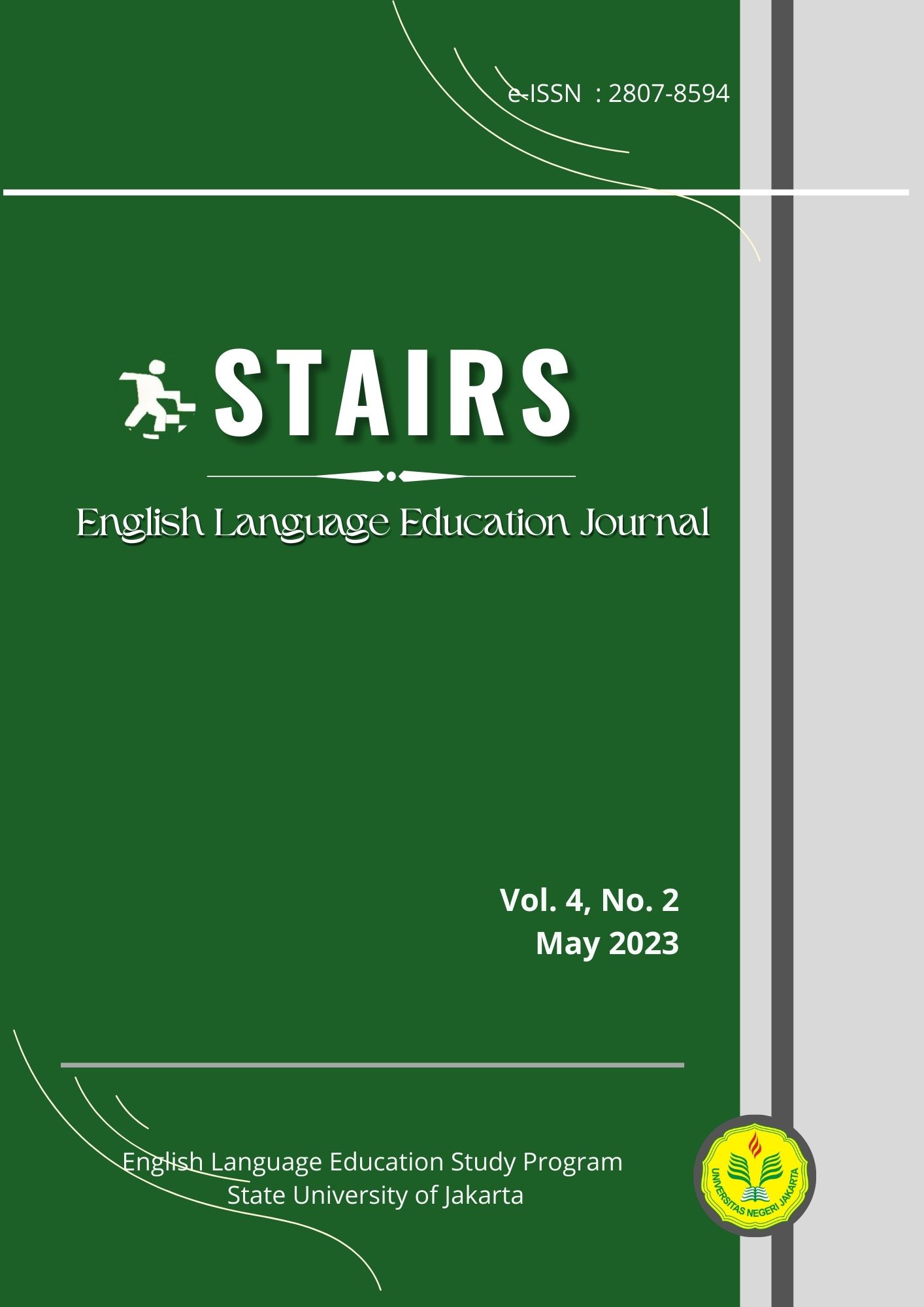Integrating 21st Century Skills in Curriculum and Material Development Course
DOI:
https://doi.org/10.21009/stairs.4.2.6Keywords:
21st-century Skills, Curriculum and Material Development, Digital SkillsAbstract
The Curriculum and Material Development (CMD) course content is contextualized in accordance with technological advancements in the era of the Fourth Industrial Revolution and the community's need for educators who possess 21st-century skills. This revision involves integrating 21st-century skill values into curriculum development, syllabi, teaching materials, media, methods, and learning evaluation. Therefore, this study focuses on integrating 21st-century skills and 21st-century digital skills, including critical thinking, creative thinking, collaboration, communication, information literacy, media literacy, technology literacy, flexibility, initiative, social skills, productivity, and leadership, into the CMD course. This study employs the Research and Development method, which involves identifying the problem, describing existing issues, creating a design, validating the design with experts, revising the design of the English learning model, conducting trials, and making revisions. The study's outcomes include three areas of integrating 21st-century skills into the CMD course. The first area involves integrating 21st-century skills into the preliminary activity of designing lesson plans. Secondly, in the process, 21st-century skills should be integrated into the design of learning materials and tasks. Finally, after the activity, 21st-century skills should be integrated into the evaluation and reflection process. The CMD course aims to integrate 21st-century skills throughout the language curriculum. It covers Communicative Syllabus Design, Text-Based Syllabus Design, Product-Oriented Syllabus Design, Process-Oriented Syllabus Design, Content-Based Curriculum, Integrated Curriculum, EFL Curriculum, and EFL Syllabuses and Lesson Plans for Indonesian Students.
References
Alismail, H. A., & McGuire, P. (2015). 21st Century Standards and Curriculum: Current Research and Practice. Journal of Education and Practice, 6(6), 150–155. http://files.eric.ed.gov/fulltext/EJ1083656.pdf
Brown, J. D. (1995). Elements_of_Language_Curriculum. BookFi.org.pdf (p. 262).
Creswell, J.W. (2015). A Concise Introduction to Mixed Methods Research. Thousand Oaks, CA: SAGE.
Hismano, M. (2011). The Integration of Information and Communication Technology into Current ELT Coursebooks : A Critical Analysis. 15, 37–45. https://doi.org/10.1016/j.sbspro.2011.03.048
Jenkins, D. M. (2015). Integrated Course Design. Journal of Management Education, 39(3), 427–432. https://doi.org/10.1177/1052562914540903
Jung, S.-H., & Oxford, R. L. (2006). The Use of ICT in Learning English as an International Language. Department of Curriculum and Instruction Collection, c. https://drum.lib.umd.edu/bitstream/handle/1903/3885/umi-umd-37...?sequence=1
Komis, V., Tzavara, A., Karsenti, T., Collin, S., & Simard, S. (2013). Educational Scenarios with ICT: An Operational Design and Implementation Framework. Society for Information Technology & Teacher Education International Conference, 2013(1), 3244–3251. http://www.editlib.org/p/48594/proceeding_48594.pdf
Lunenberg, M. (2002). Designing a Curriculum for Teacher Educators. European Journal of Teacher Education (Vol. 25, Issues 2–3, pp. 263–277). https://doi.org/10.1080/0261976022000044872
Mohr, K., & Welker, R. W. (2017). The Role of Integrated Curriculum in the 21st Century School. https://irl.umsl.edu/dissertation/688
Nikoopour, J., & Farsani, M. A. (2011). English Language Teaching Material Development. Journal of Language and Translation, 2(2), 1–12. http://ttlt.azad.ac.ir/article_531664_a5cf544dbdb1db8fde9616f545009c0e.pdf
Nunan, D. (1988). Syllabus Design: CRLT. 157–159. http://www.crlt.umich.edu/tstrategies/tssd
Partnership for 21st Century Learning. (2015). 21st Century Student Outcomes. 1–9. http://www.p21.org/our-work/p21-framework
Rahimi, M., & Yadollahi, S. (2011). ICT Use in EFL Classes: A Focus on EFL Teachers’ Characteristics. World Journal of English Language, 1(2), 17–30. https://doi.org/10.5430/wjel.v1n2p17
Review, A. L. (2003). An Effective Use of ICT for Education and Learning by Drawing on Worldwide Knowledge, Research, and Experience : ICT as a Change Agent for Education Abstract : 1999, 1–13.
Sigler, A. (2013). Language Curriculum Design and Socialization. TESOL Quarterly, 47(4). https://doi.org/10.1002/tesq.141
van Laar, E., van Deursen, A. J. A. M., van Dijk, J. A. G. M., & de Haan, J. (2020). Determinants of 21st-Century Skills and 21st-Century Digital Skills for Workers: A Systematic Literature Review. SAGE Open, 10(1). https://doi.org/10.1177/2158244019900176



